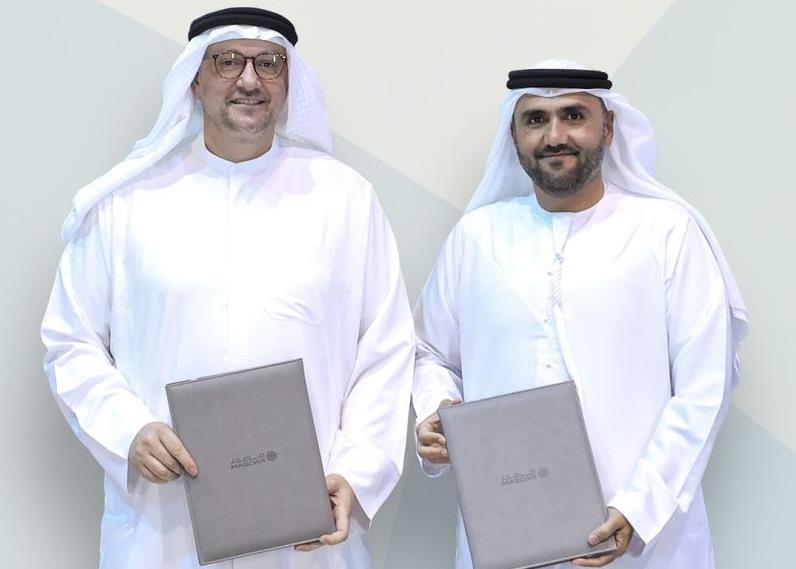
The emirate will act as a gateway for investment flows for the region
African markets are an increasingly important focus for global businesses today. The continent is home to some of the world’s fastest-growing economies and offers the highest risk-adjusted returns on foreign direct investment among emerging economies.
With an economic future driven by a young workforce of consumers, entrepreneurs and business people, mining and oil are big industries, but infrastructure investment and the consumer market also hold major potential for growth. The Dubai Chamber of Commerce & Industry (DCCI) has been working to enhance trade and commercial ties across Africa for several years, and that is the reason why we have organised the Africa Global Business Forum 2013, held under the patronage of Sheikh Mohammed bin Rashid al-Maktoum, vice-president and prime minister of the UAE and ruler of Dubai.
Growing ties
Examining five key sectors – agribusiness, trade, logistics, finance and tourism – the business forum will highlight the growing ties between the UAE and the African continent. A good example of this is Dubai’s non-oil trade, which has expanded considerably from AED10.6bn ($2.9bn) in 2002 to AED84.8bn in 2011. This is a rise of 700 per cent, fuelled by Africa’s growing populations and affluent middle classes.
Estimated to be about 313 million, Africa’s middle classes are driving demand for consumer goods and products, international brands, electrical goods and technology. At the same time, 70 per cent of its population is under 35, which is also helping to power further economic development and diversification.
The Washington-based IMF has predicted that no other continent will grow more strongly over the coming years than Africa. At the same time, governments across Africa are working to improve the business climate, which can only serve to strengthen its investment potential.
Despite all the positives, some investors still view business opportunities in the continent with caution, given the various challenges and obstacles that exist there. These vary widely from country to country, and it is difficult, if not naive, to treat doing business in Africa in one uniform way. The continent is home to 54 different sovereign states, each with uneven development, numerous small markets, and varied practices and regulations. One approach is to segment the continent regionally, which its policymakers encourage, and where Africa’s regional economic communities have either established free trade areas or are working towards it.
Global firms looking to operate in Africa are well advised to use Dubai as a stable and secure base from which to operate
With regards to the role Dubai can play in Africa, I see the emirate as a gateway to trade and investment flows into and out of the continent. Historically, Dubai has always been a major transit point for goods and trade from Africa to the rest of the world and vice versa, and this is a role that we are seeking to build on over the coming years.
Global firms looking to do business in Africa are well advised to use Dubai as a stable and secure base from which to operate. The city’s extensive infrastructure and modern banking, financial and legal systems offer good protection for investors and facilitate the ease of doing business. There are a number of successful global companies doing just this, including Switzerland’s Nestle, Louis Dreyfus, one of the world’s largest commodity traders, and MiDCOM Group, the largest Nokia distributor in the Middle East and Africa region, all of which base their Africa offices in Dubai. At the same time, African entrepreneurs seeking expansion into European, Asian and the US markets can use Dubai as a base for all the same benefits as global firms seeking a base for their African operations.
Already, a number of UAE companies have been major players in Africa for some time. DP World has had a presence in the continent since 2000, and now runs the port of Dakar in Senegal and port operations in Djibouti, Algeria and Mozambique. Meanwhile, telecoms firm Etisalat has stakes in Atlantique Telecom, which operates in about six countries in West Africa, as well as Tanzania’s Zantel and Sudan’s fixed line operator Canar. These companies are proving that business opportunities exist across Africa for foreign investors, and we hope that through the upcoming Africa Global Business Forum we can encourage more.
Key sectors
Through the forum, we will be focusing on the key sectors that have major potential for investment in Africa and room for business synergies with companies in Dubai and across the emirates. Take, for instance, agribusiness; it has the potential to drive the continent’s development since agriculture remains by and large the biggest employer in Africa. The UAE imports more than 80 per cent of its food, spending AED25.5bn on food imports in 2010. Dubai has more than 13,500 food establishments and imports food from more than 150 countries.
Looking ahead, DCCI’s commitment to Africa will not end with the conclusion of the business forum. Over the next three to five years, we will be encouraging more investment and two-way business flows by opening overseas offices in key locations across Africa. Our first such office, which is in the final stages of preparation, will open in Addis Ababa in Ethiopia. In terms of our commitment to the continent, we are serious in our focus and are looking to the long term for joint prosperity.
Hamad Buamim is the director-general of the Dubai Chamber of Commerce & Industry.
You might also like...

Neom seeks to raise funds in $1.3bn sukuk sale
19 April 2024

Saudi firm advances Neutral Zone real estate plans
19 April 2024

Algeria signs oil deal with Swedish company
19 April 2024

Masdar and Etihad plan pumped hydro project
19 April 2024
A MEED Subscription...
Subscribe or upgrade your current MEED.com package to support your strategic planning with the MENA region’s best source of business information. Proceed to our online shop below to find out more about the features in each package.








